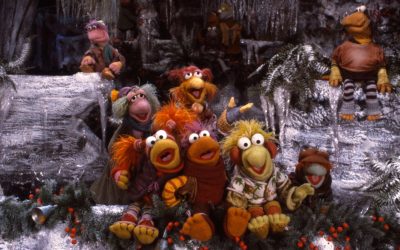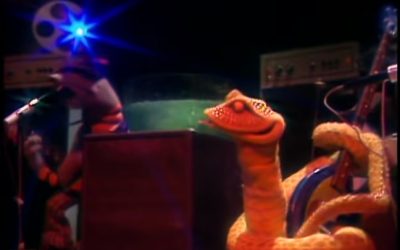Synopsis: Wembley gets Convincing John to make him stop wembling, but little does he know that Convincing John… and you’re not gonna believe this… has a secret.
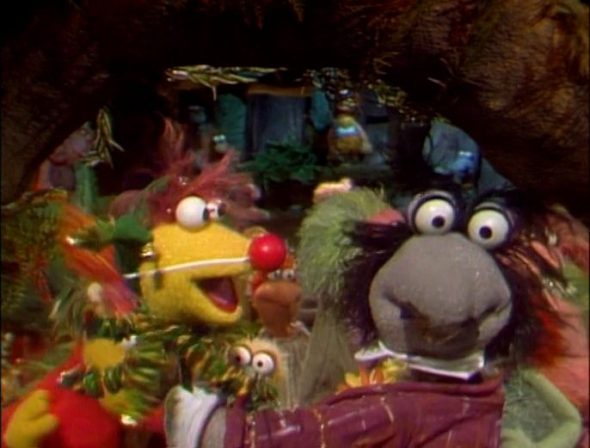
Original air date: April 2, 1984
I love Fraggle Rock. I love Wembley. So it should come as no surprise that I love The Good Place. That show is similarly skilled at fusing the very thoughtful and the very silly. In fact, it has its own Wembley Fraggle.
That Wembley is named Chidi, and – minor The Good Place spoilers here – Chidi is sent to hell for being annoyingly indecisive. Chidi’s redemptive series arc concludes with him becoming confident and decisive, as exemplified by how quickly he can choose what to eat from a menu. It’s weird how that show committed so hard to framing the personality trait that made him lovable as a major character flaw, to the point that he ultimately becomes his opposite. That’s especially strange given that the fans who latched onto the character the most were often neurodivergent viewers who saw their experiences represented by Chidi.
Then there’s good old Fraggle Rock.
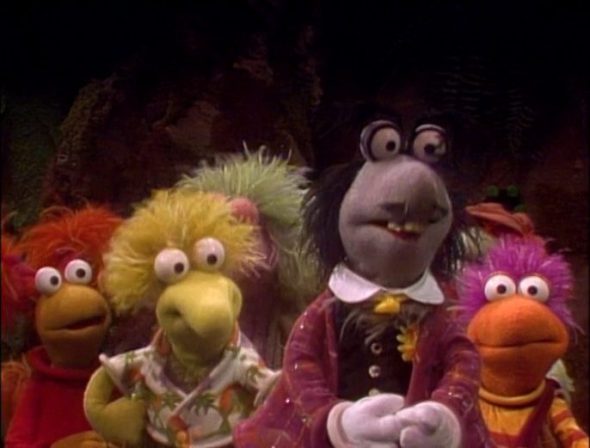
This episode relies on that trusty Fraggle Rock trope, the Fraggle Turnover. That’s when a character is so desperate to change themselves or their circumstances that they suddenly decide it’s Opposite Day and commit to staying that way forever, even though this never works. (See Red’s transformation in “I Want to Be You” or Wembley’s switcheroo in “The Wizard of Fraggle Rock”.) In this case, Wembley wants to be the opposite of a wembler. He has good reason: in his wembling over where to tie a safety rope for Gobo, he lets Gobo plummet in a hole in Outer Space.
After a little singing from our old pal Convincing John, Wembley becomes Wilfred, who makes quick decisions without concern for others’ perspectives and is too stubborn to be persuaded. Wilfred decides to go into Outer Space and cannot be deterred, but he forgets about the hole in which Gobo had just fallen and falls in himself. After being rescued, he’s determined to go try again. His friends take him back to Convincing John to be changed back, and what should they find when they reach his cave? Convincing John, of all Fraggles, turns out to be just as much a wembler as Wembley!
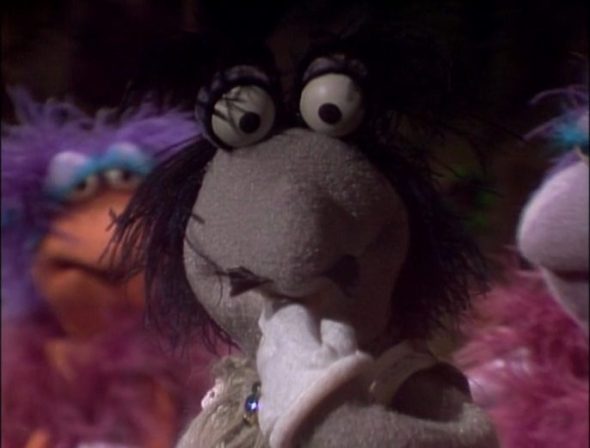
To me, this revelation (revelication?) gives us some idea of how Fraggle Rock is able to keep from falling into ruin with a guy as dangerous as ol’ C.J. around. In real life, when charmers persuade the masses, their practice has an object. The con man does not wish to convince you for the sake of convincing you; the con man convinces you to give him money because he wants money. Convincing John’s practice has no object, and not just because he’s in it for the love of the game. It seems like it’s rare for him to be able to land on a position worth convincing others to hold.
I want you to know that I stopped writing that last sentence midway through because it just hit me that I’ve described myself again. I desperately want to support good causes in what ways I can, and I know that my strengths lie in creating media that impacts how others think, yet I hardly ever find it in me to put my chips down on a person, organization, or project that seems to be doing the right thing. I can’t commit, and that’s costly these days.
I connect with Wembley’s story too. Heck, when I started writing this article, I told myself I was going to knock it out quickly without wrestling with it, even though I know that I usually can’t do that. I like that what undoes Wembley’s resolve is the introduction of harder and harder choices, culminating in Convincing John’s version of Let’s Make a Deal. Everybody has a breaking point. Wembley’s comes when he’s presented with two delicious foods and can’t pick one. Kind of reminds me of a wembler from another show I like. Hmm.
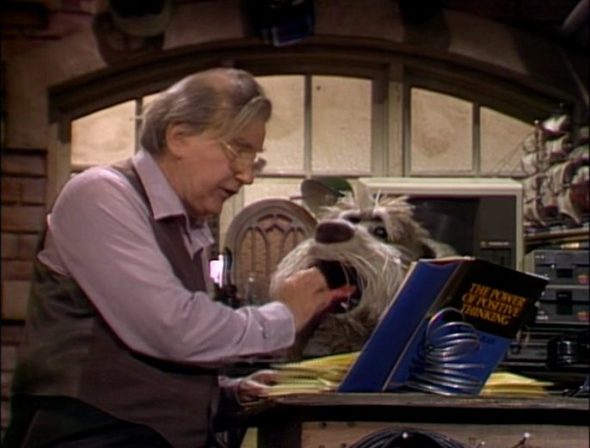
I find Doc’s story the most compelling of all. Doc, a grump, is reading a book on positive thinking, and decides to make Fraggle Turnover and become a sunshiny optimist. When his water stops running, he chooses not to call up the landlord to angrily demand it be fixed like he usually would. Instead, he forces himself to be cheery as he tries to fix the issue himself, trusting everything is fine, even as he discovers that he doesn’t have the tools he needs to fix the pipes. He ultimately learns to accept himself and better moderate his approach to changing his disposition. You may not have noticed it, but there’s something about this that’s kind of radical.
Folks, this is a Jim Henson show. He’s the “ridiculous optimism” guy. He’s the man who said, “If our ‘message’ is anything, it’s a positive approach to life.” You would expect this show to want Doc to totally switch his attitude to positivity. Yet, his story ends with Doc offering an unusually didactic explanation of the show’s point of view, and it’s quite different. After Doc successfully channels his negativity toward pressuring his landlord to turn the water back on, and ceases grumbling when his negative attention has served its purpose, he says, “that’s the difference between good, healthy anger and just growling at people. I don’t need to change my personality […] but I suppose I could try growling a little less.”
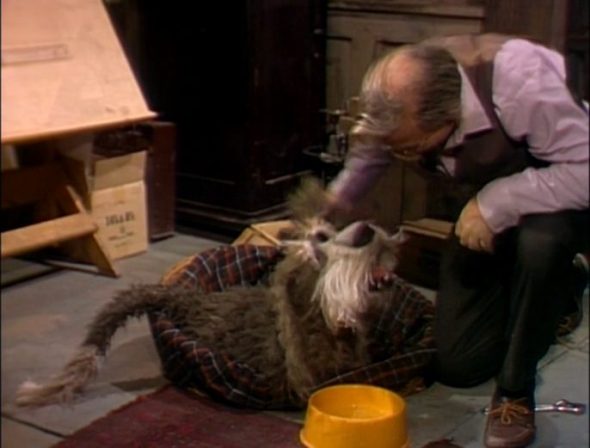
I’ll be honest with you. I am, at all times, wrestling with a particular moral and intellectual crisis. I believe that the way most folks think will need to change in order for the world to get better. I also believe that the different ways in which people think should be respected, not “corrected”. There is a tension between these two beliefs that freaks me out. To further complicate things, I’m a Jim Henson fan who is not an optimist, and has no intention of ever becoming one. It’s just not who I am. I believe that life is basically bad and negativity is basically good, so long as it’s formed into an understanding of the problems people face and what can be done to make things better. This kind of puts me at odds with the spirit embodied by… well, most of the people carrying on Jim’s legacy, and understandably so.
Yet, here’s this episode of Fraggle Rock about a negative man who stays negative. And that’s okay. He’s making it work. His brain gets to stay his brain, just as Wembley’s brain gets to stay Wembley’s brain. And here’s Jim, who only performed on this show eight times that I know of, in the middle of all of it. He’s giving his all in this performance, spinning around and throwing some cheeky looks to the camera. I know he didn’t write or direct this episode, but it’s nice to see him invested in it. It seems to me that he was committed to making the world into a place where all different sorts of brains and different ways of thinking are valued. That world sounds like a good place to me.
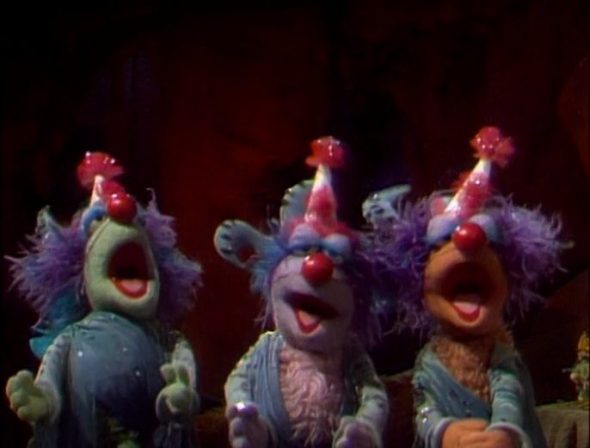
Strongest Moment: “It’s so dark under this floor, I can’t see a thing,” Doc says as he tries in vain to fix his pipes. He catches himself here and puts on a smile. “But then, even though it’s dark under the floor, there’s no reason why there can’t be a light… in my heart!” Sprocket shakes his head. It’s perfect.
Weakest Moment: The rhythm is a little off in some of these reimaginings of Convincing John’s song. Not terribly, but enough to take me out of it, which is sad. It was a very good song the first time we heard it!
MVF (Most Valuable Fraggle): Convincing John! We see him in bed in his undergarments, and he’s still wearing his gloves and diamond ring. What a legend.
Musical Highlight: Given the above note, I’ll go with “Choose-Right (Up-Tight Move-Now) Blues”. Terrific performances all around.
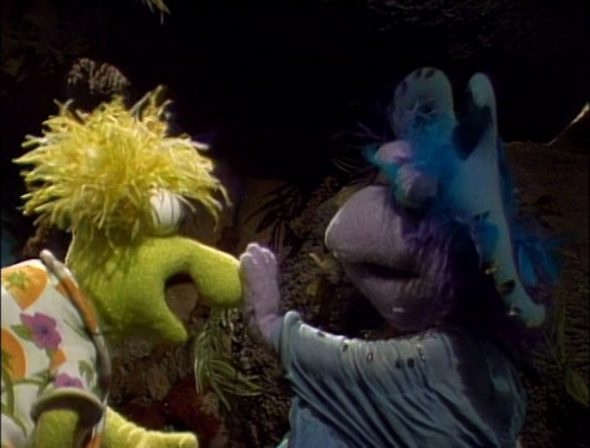
Coolest Puppetry Effect: More of a cool puppetry movement, Wembley spins around in circles until his nose lands right up against the tiny hand of one of the Fragglettes. (Performed flawlessly by Richard Hunt here, she says, “Looking for someone, baaaaby?” It’s pure joy.) This moment highlights for me how Wembley and Convincing John have similar physicalities that I never noticed.
Darkest Moment: Wembley sure is convinced that he killed Gobo. Maybe Gobo should have waited until Wembley tied the rope before going into outer space. Was it really the wembling that put Gobo in danger, or Gobo’s impatience?
One More Thing… Steve and Dave sound like they have colds in this one. Wembley has a lower voice, which isn’t ideal for the scenes when he’s himself, but it’s perfect for Wilfred.
Okay, One More Thing… Many of these characters show total disinterest in respecting others’ autonomy. This gets rather frustrating when they’re all worked up about having to call Wilfred Wilfred. Letting people be themselves is kinda contingent on respecting others’ authorship of their own dang lives, and it’s a bummer that this show doesn’t always understand that. And what a perfect closing note that is – so wonderfully negative! Now scram.
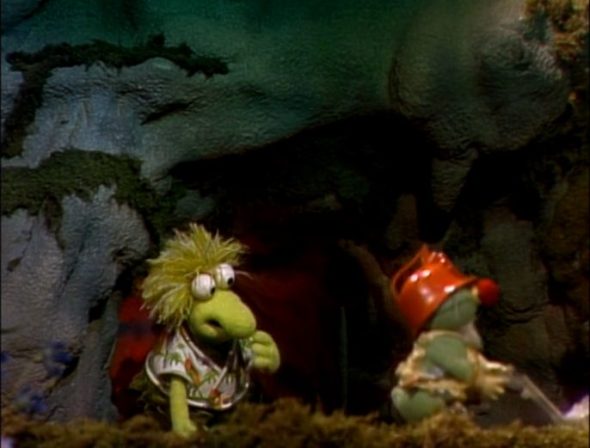
Click here to nearly die in a hole on the ToughPigs Discord!
by J.D. Hansel – jdhansel@toughpigs.com

